Resources

Real-World Use Case for Zero-Emission Trucks: Market Review and Policy Suggestions for Guangdong Province
This working paper examines the zero-emission truck (ZET) market in Guangdong by focusing on promotion policies and technical specifications of top-selling models, and then estimates the total cost of ownership of a real-world use case for zero-emission dump trucks in Guangzhou and Foshan.
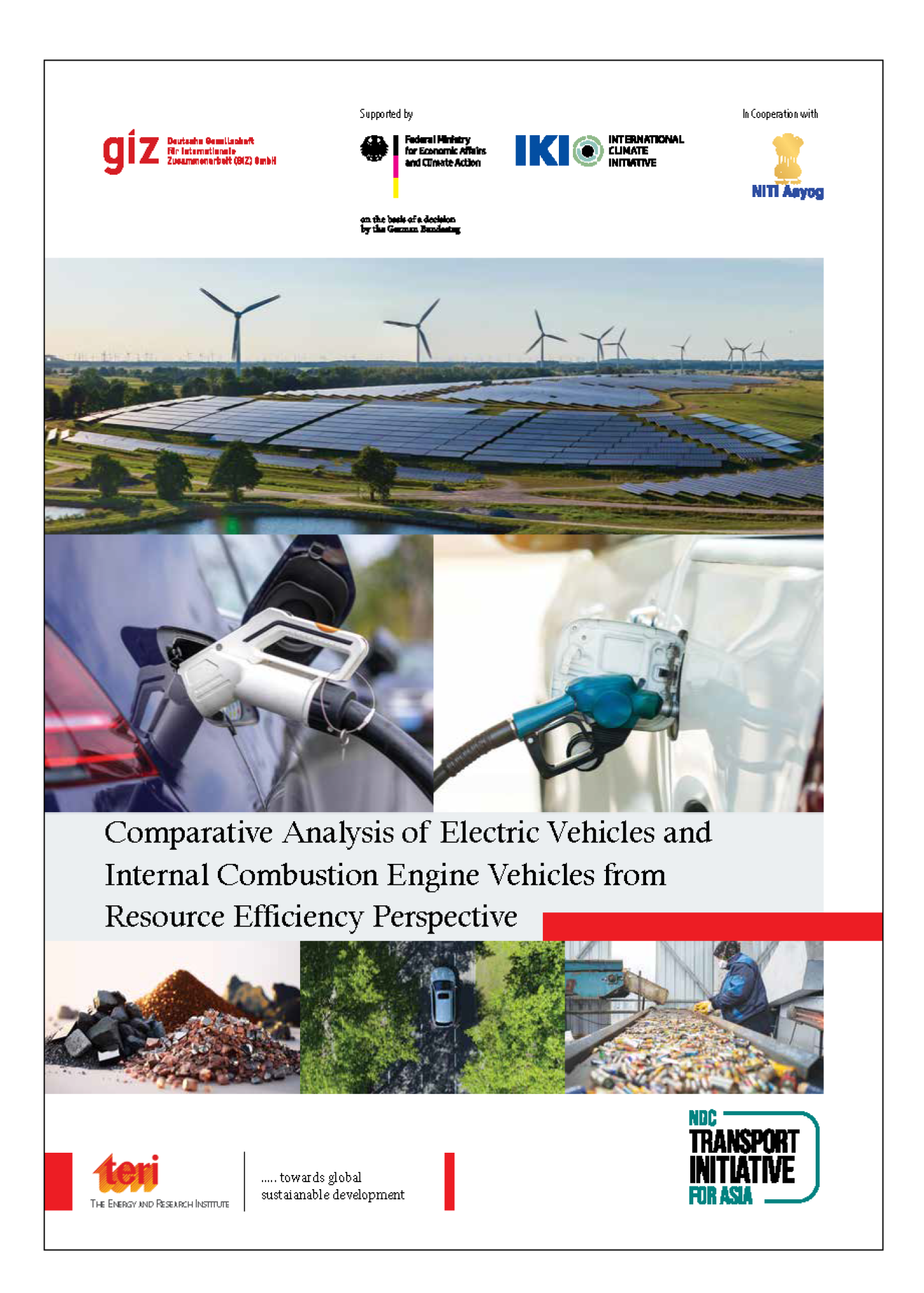
Comparative Analysis of EVs and ICEVs from Resource Efficiency Perspective
This research publication conducts a detailed comparative analysis to assess various environmental performance of EV’s and ICEV’s (petrol, diesel and CNG) in the 3-Wheeler and 4-Wheeler vehicle segment across its entire life cycle. The study has been analysed using India-specific conditions.
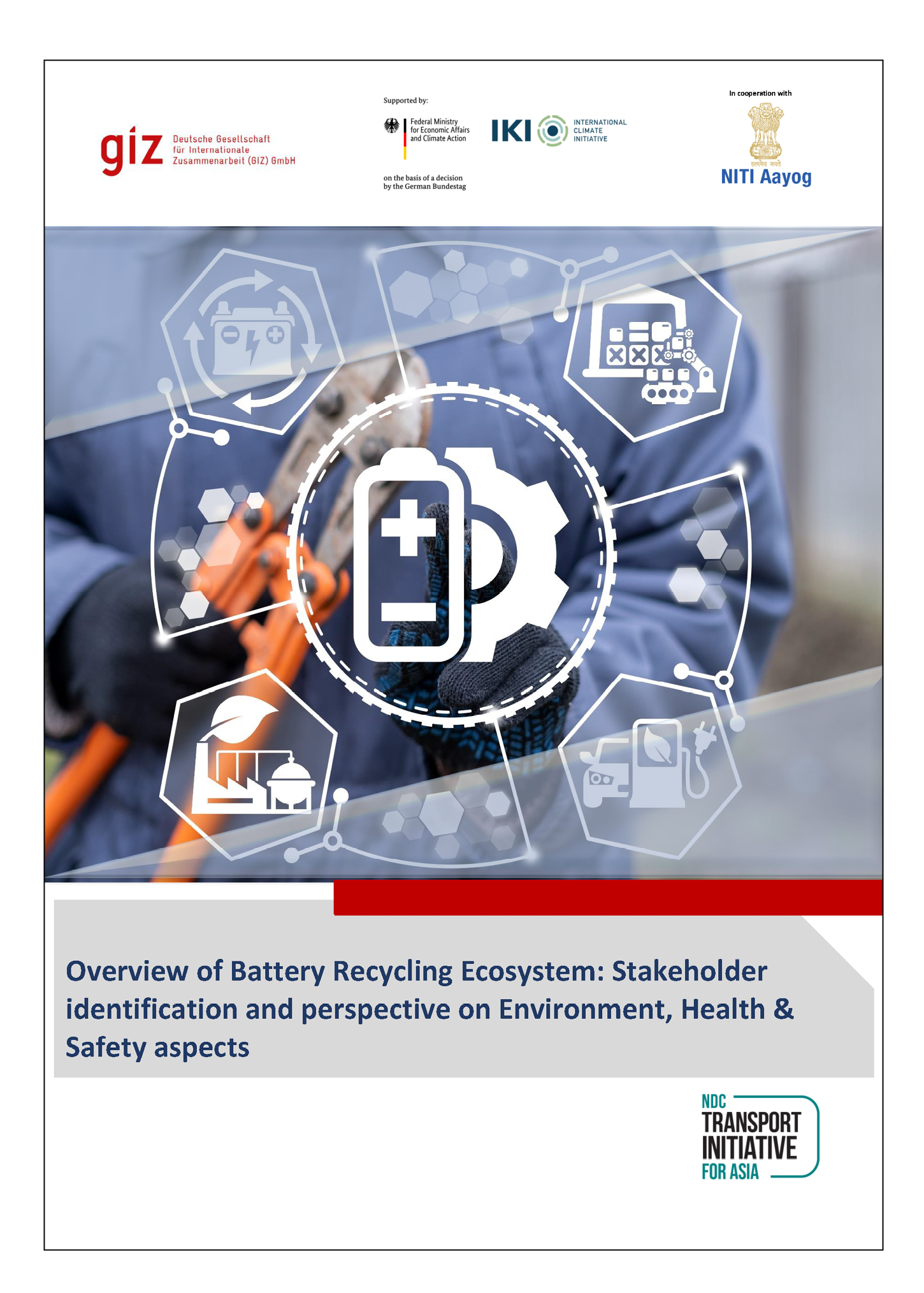
Overview of Battery Recycling Ecosystem: Stakeholder identification and perspective on Environment, Health & Safety aspects
The report serves as a guiding document for the new entities in the battery recycling ecosystem, identifying various stakeholders and their corresponding roles and responsibilities. For these stakeholders, the report discusses permissions required for setting up battery recycling/refurbishing facilities, risks and corresponding mitigation measures, and standard operating procedures for safe handling of batteries.

Fuel Economy Dataset and Baseline for Passenger Cars under 9 Seats in Viet Nam
This technical report aims to build up the Fuel Economy (FE) database and the baseline establishment for passenger cars under 9 seats with the most up-to-date information and data available, which would serve as the basis for further development of mandatory FE standards in Viet Nam.
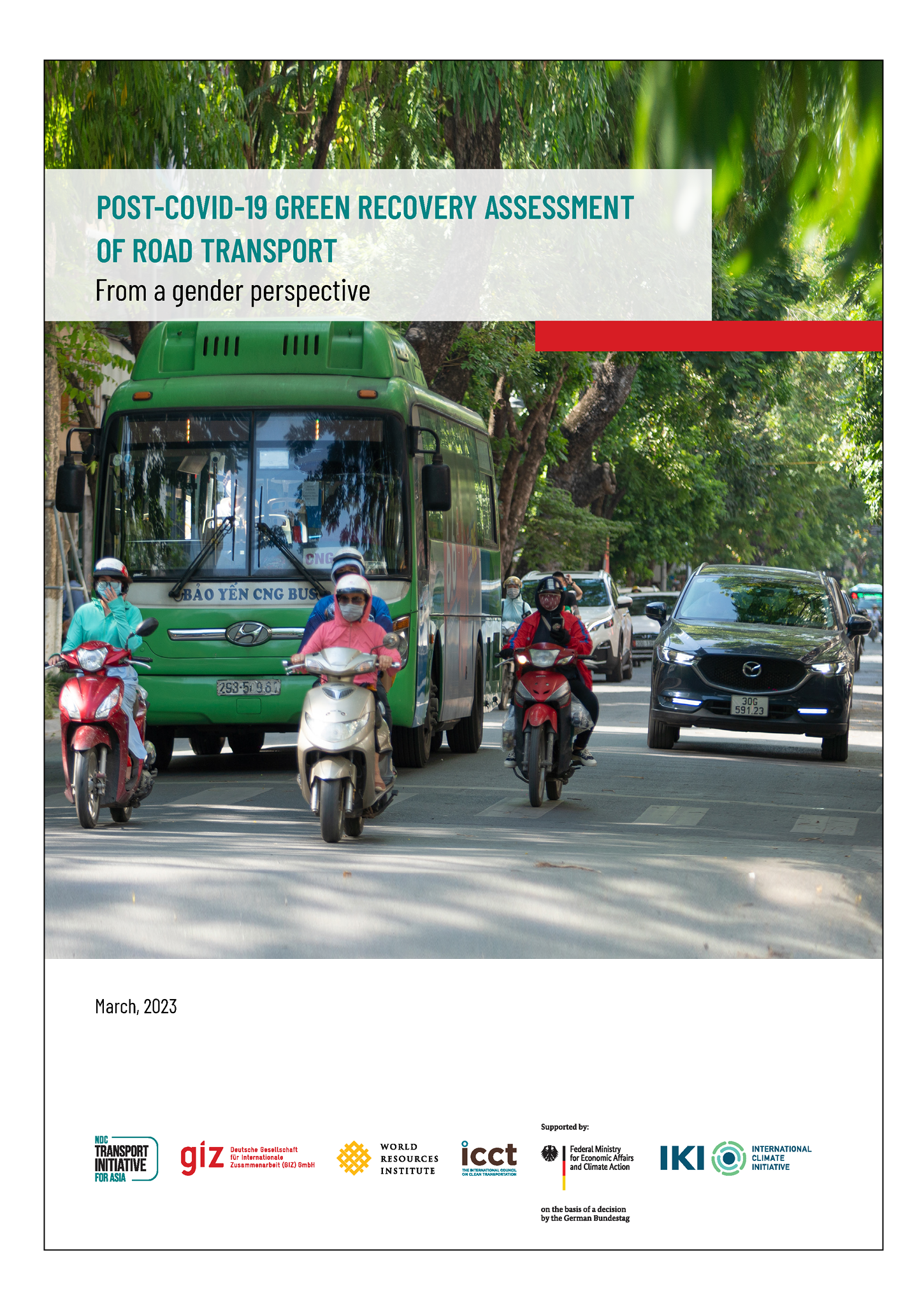
Post-COVID-19 Green Recovery Assessment of Road Transport - From a Gender Perspective
The thematic study explores gender perspectives in enterprises operating in road transport by assessing their resilience and the application of green and inclusive recovery measures post COVID-19 pandemic. The study also analyses measures, policies, and strategies toward the goal of net-zero emissions in the transport sector in Viet Nam.
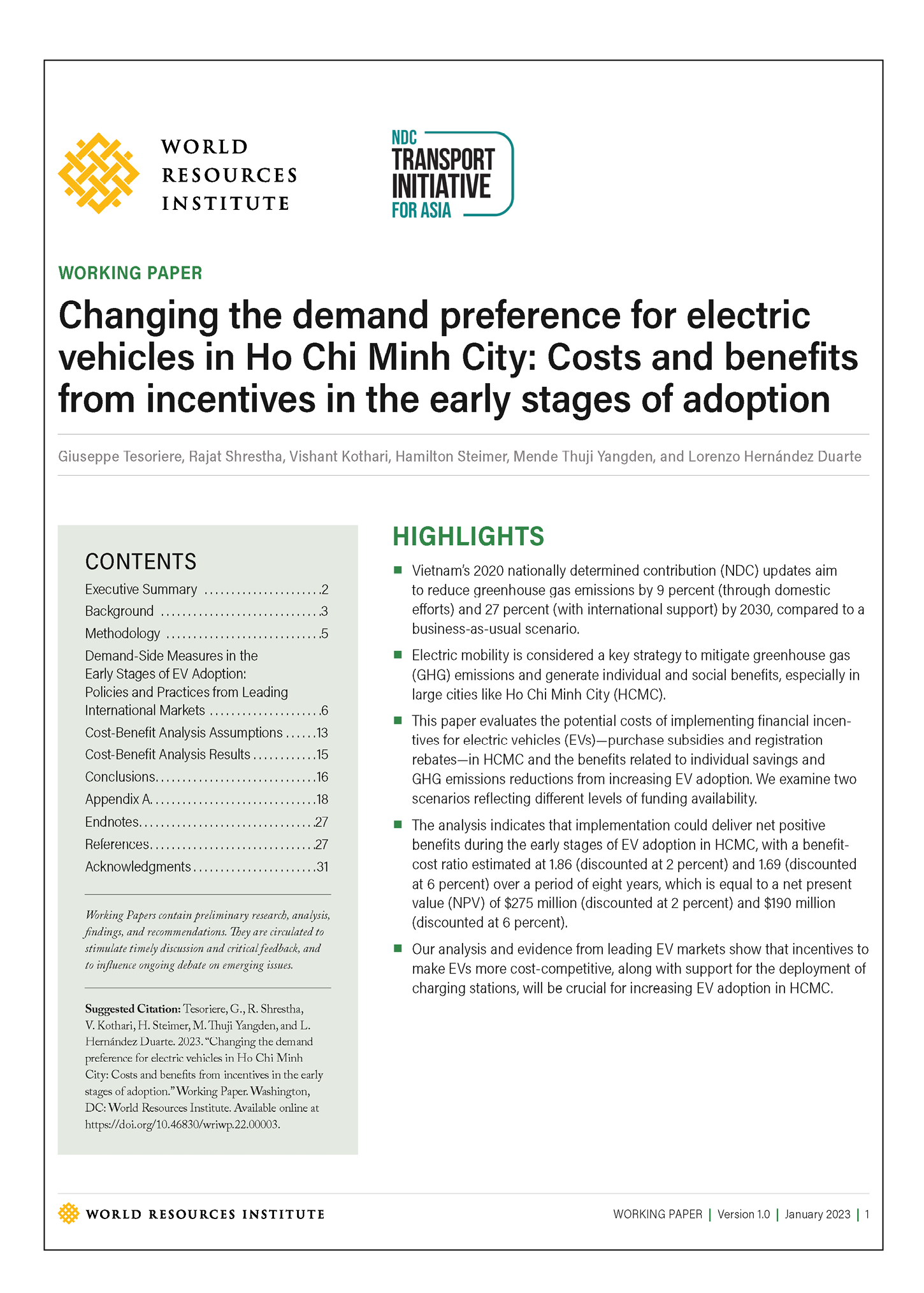
Changing the Demand Preference for Electric Vehicles in Ho Chi Minh City: Costs and Benefits From Incentives in the Early Stages of Adoption
This paper evaluates potential costs of implementing financial incentives for electric vehicles (EVs) and the benefits related to individual savings and GHG emissions reductions in Ho Chi Minh City.
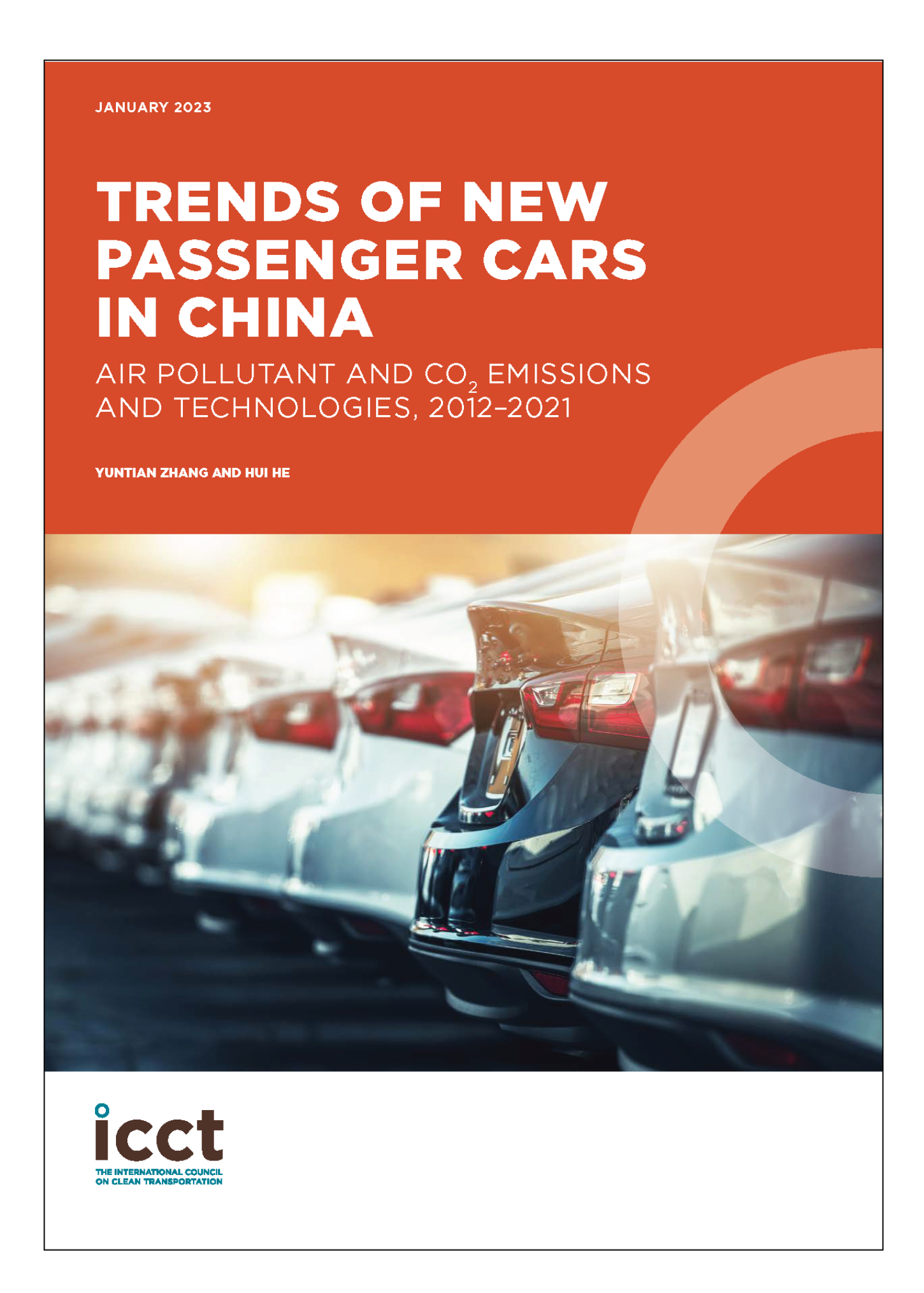
Trends of New Passenger Cars in China: Air Pollutant and CO2 Emissions And Technologies, 2012–2021
This report supports future policies in China by analyzing air pollutant emissions, carbon dioxide (CO2) emissions, and key technologies driving reductions in emissions from passenger cars in the country from 2012 to 2021.
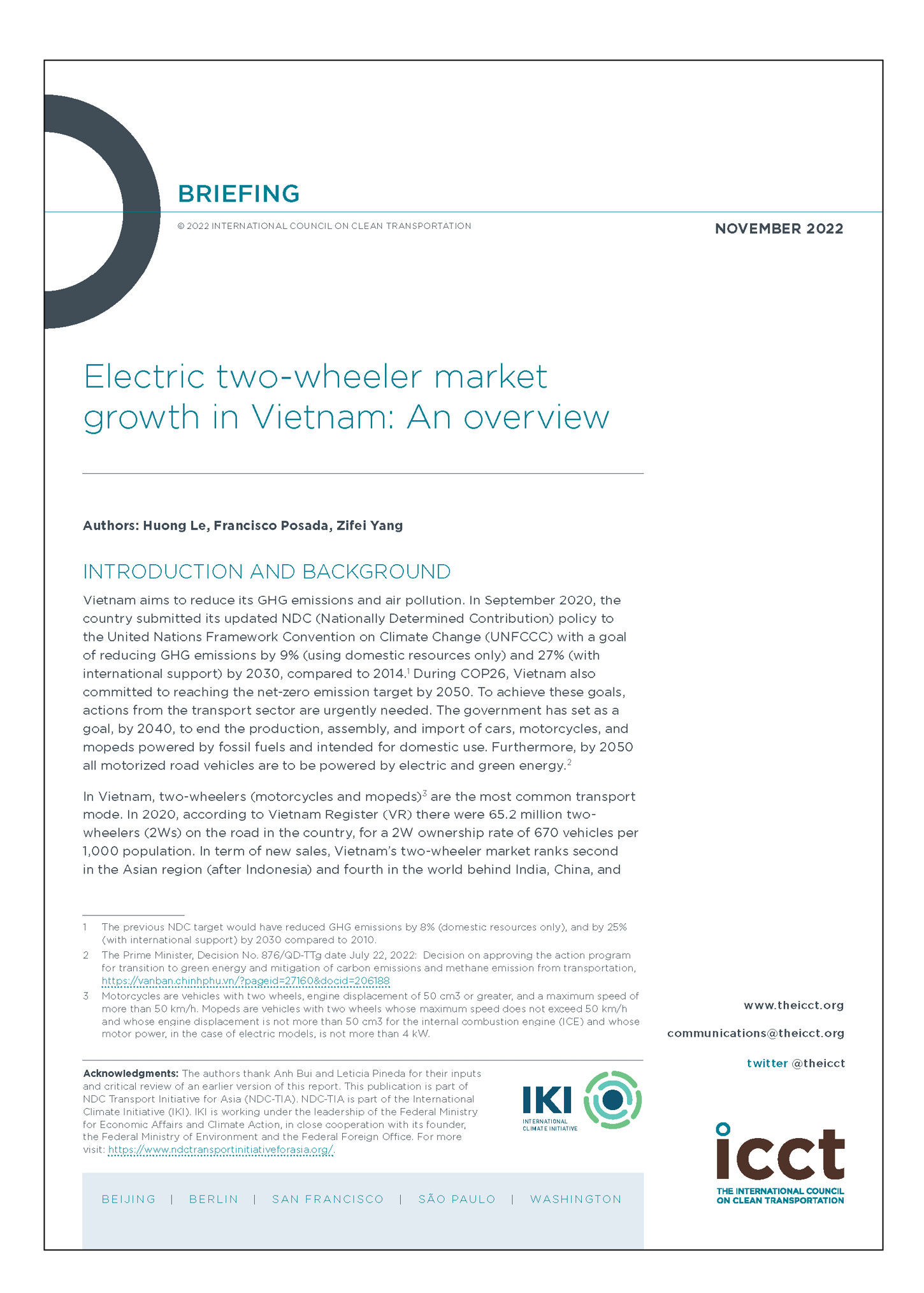
Electric Two-wheeler Market Growth In Vietnam: An Overview
This publication surveys the market for electric two-wheelers in Vietnam and examines the country’s potential to become a leader in the production of electric two-wheelers.
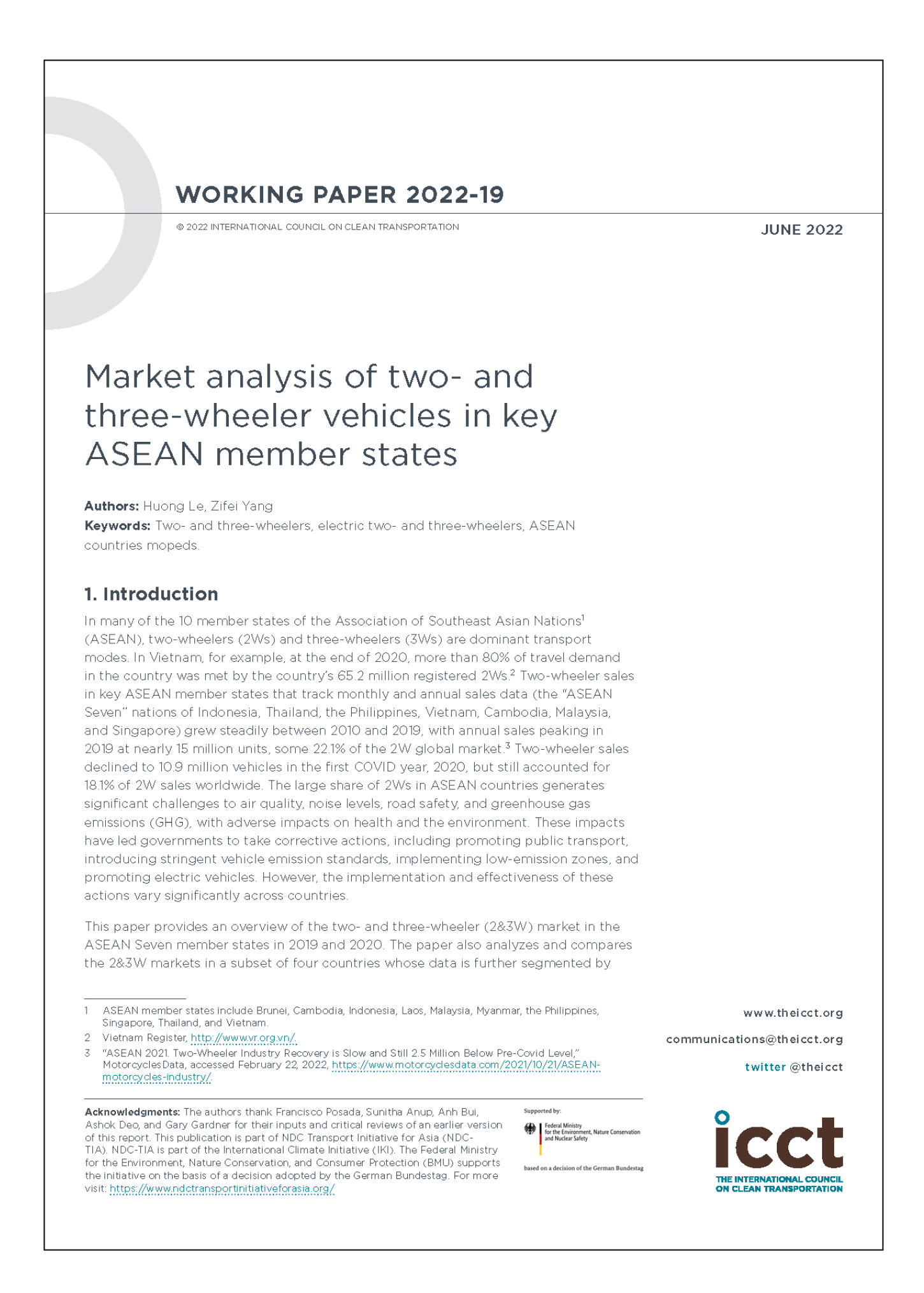
Market analysis of two- and three-wheeler vehicles in key ASEAN member states
This paper presents a profile of the two- and three-wheeler (2&3W) market in seven ASEAN member states and could be used to support future policy development in mitigating the negative environmental impacts of 2&3Ws.
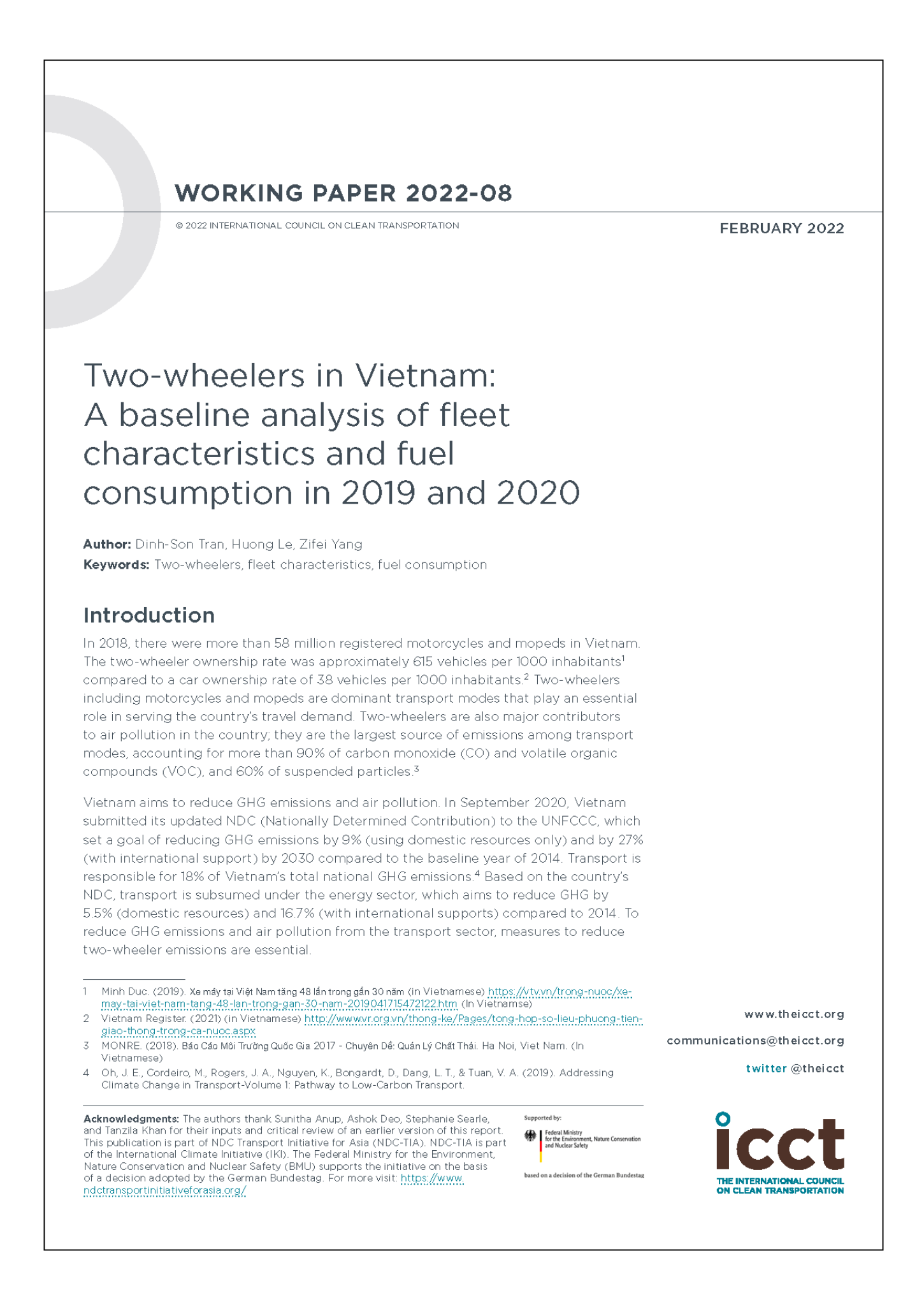
Two-wheelers in Vietnam: A baseline analysis of fleet characteristics and fuel consumption in 2019 and 2020
In this paper by ICCT, the authors developed a database of the two-wheeler fleet sold in 2019 and 2020 and then analyzed vehicle characteristics and fuel consumption by two-wheeler type and by manufacturer.
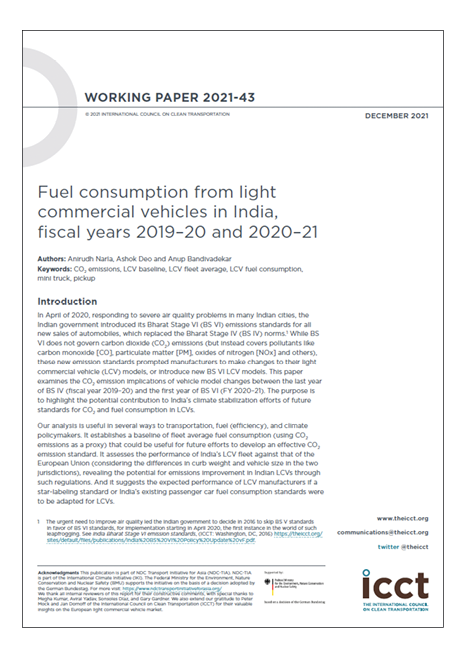
Fuel consumption from light commercial vehicles in India, fiscal years 2019–20 and 2020–21
This paper is a continuation of the series of working papers on the Indian LCV market, dating back to 2016. it focuses on the N1 (load-carrying LCVs) category of vehicles, which consists of mini trucks and pickups. It includes a brief comparison with the performance of the M1 (passenger cars) category of vehicles
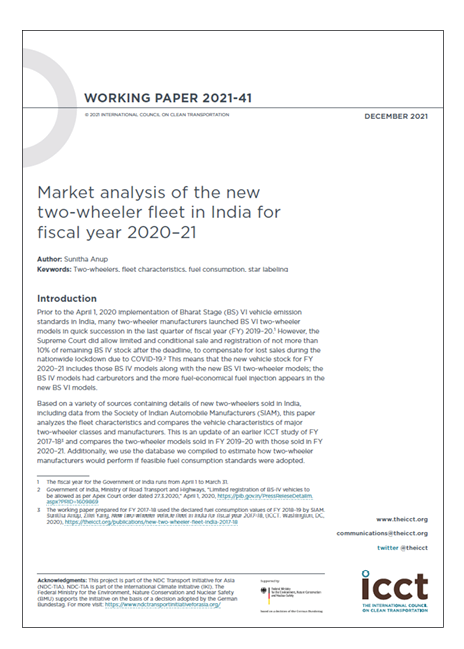
Market analysis of the new two-wheeler fleet in India for fiscal year 2020–21
This study analyzes fleet characteristics and compares the vehicle characteristics of major manufacturers and classes of new two-wheelers sold in India for the fiscal year 2020-2021.
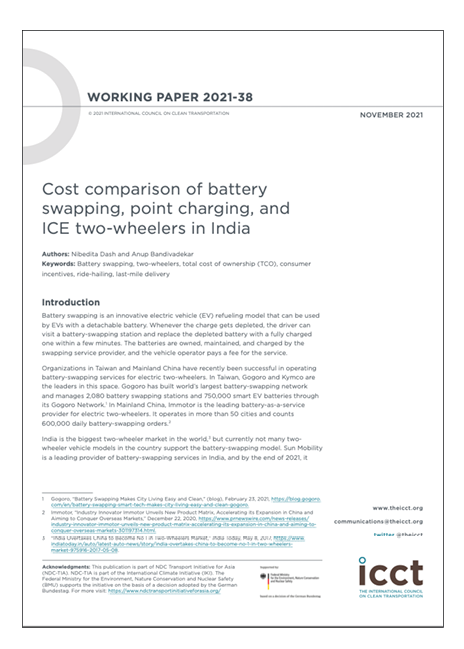
Cost comparison of battery swapping, point charging, and ICE two-wheelers in India
Battery swapping is an innovative electric vehicle refueling model that can be used by vehicles with a detachable battery. This paper evaluates if electric two-wheelers in India with the battery-swapping option have achieved cost parity relative to electric two-wheelers with the point charging option and with conventional gasoline two-wheelers. The results in this working paper show that for all three use cases considered, the electric two-wheelers with point-charging and battery-swapping options are considerably cheaper than the gasoline two-wheeler.
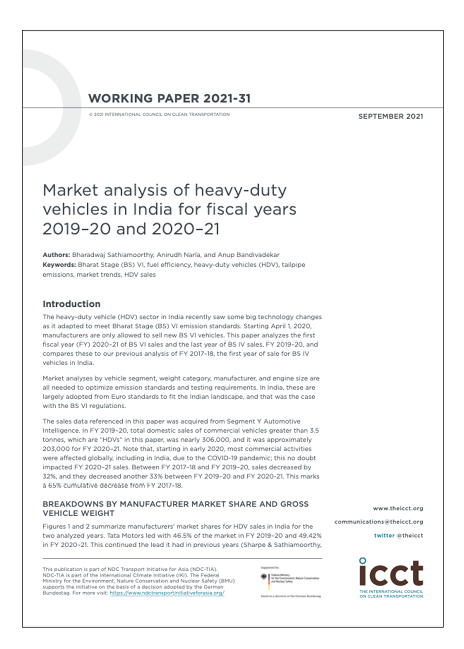
Market analysis of heavy-duty vehicles in India for fiscal years 2019–20 and 2020–21
Market analyses by vehicle segment, weight category, manufacturer, and engine size are needed to optimize vehicle emission standards and testing requirements. In India, these are largely adopted from Euro standards to fit the Indian landscape, and that was the case with the Bharat Stage (BS) VI regulations that took effect April 1, 2020. The heavy-duty vehicle market saw some big technology changes to meet the new standards, and this paper analyzes the first fiscal year (FY) 2020–21 of BS VI vehicle sales and the last year of sales under the previous BS IV standard, FY 2019–20.
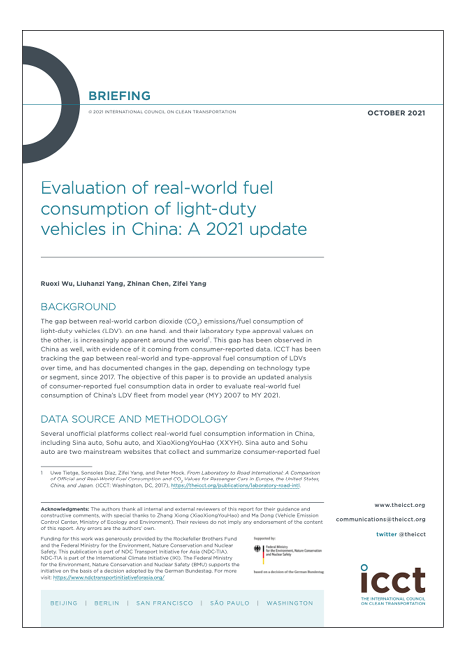
Evaluation of real-world fuel consumption of light-duty vehicles in China: A 2021 update
The gap between real-world fuel consumption and emissions of carbon dioxide from light-duty vehicles (LDV), and their laboratory values, is increasingly apparent around the world, including in China. This ICCT briefing shows that the accelerated expansion of the gap clearly indicates the need for regulatory changes to reverse the trend and close the gap.
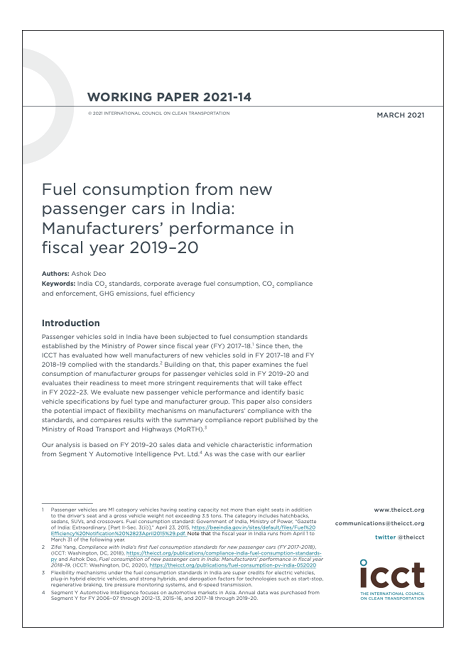
Fuel consumption from new passenger cars in India: Manufacturers’ performance in fiscal year 2019–20
New fuel consumption limits for passenger vehicles are scheduled to take effect in India in FY 2022–23, and this paper examines the performance of manufacturer groups with respect to new passenger vehicles sold in FY 2019–20.
